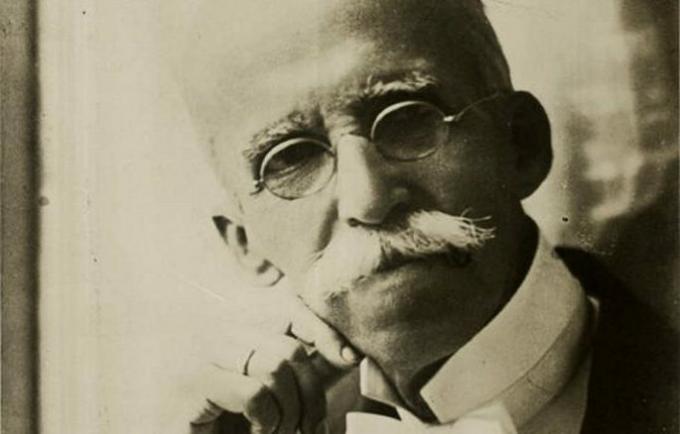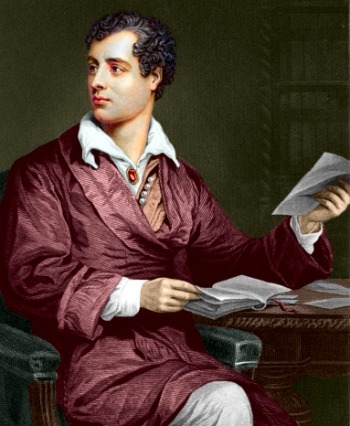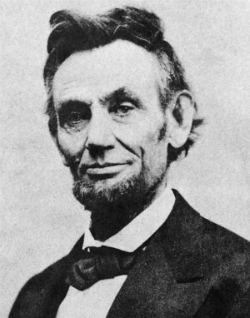Rui Barbosa he was a Brazilian intellectual, politician, lawyer, journalist, diplomat, orator and writer.
One of the most important figures in the history of Brazil, she participated in the founding of the Brazilian Academy of Letters (ABL), of which she was president, after the death of Machado de Assis.
Defender of Liberty, alongside Joaquim Nabuco, one of the most important abolitionists, Rui acted in the Abolitionist Campaign for the liberation of slaves. In addition, he proposed an electoral and educational reform.
Biography
Son of João José Barbosa de Oliveira and Maria Adélia Barbosa de Almeida, Rui Barbosa de Oliveira was born in Salvador, on November 5, 1849.
He attended primary and secondary studies in his hometown. He entered the Recife Law School, moving to the capital of São Paulo, where he completed his studies at the São Paulo Law School in 1870.
He went to live in Rio de Janeiro, where he practiced as a lawyer and journalist.

He had great political activity occupying several positions: Deputy of the Province of Bahia (1878), twice General Deputy (1878 to 1884), and five times elected Senator (1890-1921).
He was Minister of Finance in the Government of Deodoro da Fonseca. He ran for the Presidency of the Republic on two occasions (1910, against Hermes da Fonseca, and 1919, against Epitácio Pessoa), being defeated on both.
When he ran for office alongside Hermes da Fonseca, Rui Barbosa launched his Presidential Campaign (1910) called “Civilist Campaign”, which spread throughout the national territory.
In the campaign, he proposed civil order as well as a more effective policy for the country, thus demonstrating ownership and solidity in his speeches. In the words of the intellectual:
Civilism is a principle, it is a doctrine, it is a moral aspiration, it is an anticipation of the future, it is a clarity of God's spirit open in this hell, is something that speaks to us of good, honor and justice!
Rui Barbosa remained in exile in Argentina, Lisbon, Paris and London, as he was involved in the Revolution of the Armada (1893).
He became known as the "Eagle of The Hague" as he stood out in his participation in the "Second Conference The Hague Peace International”, which took place in 1907, in the Netherlands, in which he defended the equality between nations.
He was later appointed Judge of the International Court at The Hague and, along with other intellectuals, was named one of the “seven sages of The Hague”. After the event, Rui declares:
I saw all the nations of the world together, and I learned not to be ashamed of mine. Measuring closely the big and the strong, I found them smaller and weaker than justice and law.
Rui Barbosa died in Petrópolis, on March 1, 1923, at the age of 73.
Construction
Owner of a vast intellectual production, Rui Barbosa wrote several works, consisting of poems, articles, essays, speeches.
Among his works, there is the speech written for the graduates of the Faculty of Law of Largo São Francisco, entitled: “Prayer to Young Men” (1920). Below are some of his works:
- Castro Alves: Praise of the Poet for the Slaves (1881)
- Finances and Politics of the Republic: Discourses and Writings (1893)
- The Unconstitutional Acts of Congress and the Executive before the Federal Court (1893)
- Letters from England (1896)
- Possession of Personal Rights (1900)
- The Brazilian Civil Code (1904)
- Northern Acre (1906)
- Brazil and the Latin American Nations at The Hague (1908)
- Amazon's Right to Northern Acre (1910)
- Platform (1910)
- The Lawyer's Duty (1911)
- Problems of International Law (1916)
- Oswaldo Cruz (1917)
Sentences
- “Those who do not fight for their rights are not worthy of them.”
- “Freedom is not a luxury in good times; is the greatest element of stability.”
- “If the weak do not have the force of arms, let them arm themselves with the force of their right, with the affirmation of their right, surrendering themselves to all the necessary sacrifices so that the world does not ignore the character of entities worthy of existence in communion International.”
- “Laws are a brake on public crimes - religion for secret crimes.”
- “The sword is not order but oppression; it is not tranquility but terror, it is not discipline but anarchy it is not morality but corruption, it is not the economy but bankruptcy.”
- “Teaching, like justice, like administration, prospers and lives much more really on the truth and morality, with which it is practiced, than on the great innovations and beautiful reforms that are enshrined in it..”
- “I don't trade justice for pride. I don't leave the right by force. I don't forget brotherhood for tolerance. I don't replace faith with superstition, reality with idol.”
Curiosities
- In honor of Rui Barbosa, several streets, avenues and squares in the country bear his name.
- The Casa de Rui Barbosa Foundation, located in the Botafogo neighborhood, Rio de Janeiro, is a federal public institution linked to the Ministry of Culture. There, it is where the intellectual lived and research on his patron is currently destined. The museum with furniture by Rui Barbosa is part of the complex, as well as the library that belonged to the jurist, comprising approximately 35,000 copies.



